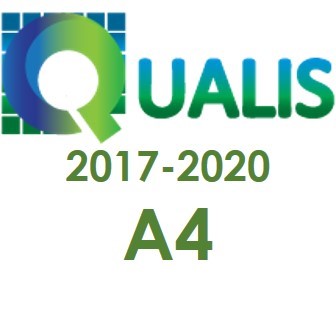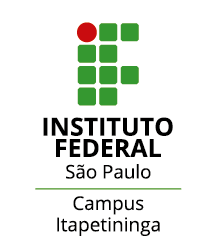Conexiones entre la neuroeducación y la formación docente
Palabras clave:
Currículo. Capacitación docente. Contenidos. Neurociencias CognitivasResumen
El principal objetivo de este trabajo es presentar algunas conexiones entre las Neurociencias Cognitivas y la capacitación del profesorado. Es parte de un posdoctorado. Es teórico, cuyo análisis fue realizado en artículos y libros fechados entre 2008 y 2019. Los resultados apuntan a la necesidad de presentar a los futuros profesores y, ya profesores, cuestiones relacionadas con el funcionamiento cerebral en el acto del aprendizaje: emociones, ansiedad, don, cultura, plasticidad cerebral, transmisión de información, entre otros. Se necesita más investigación colaborativa en esta área para consolidar el diálogo entre Neurociencias Cognitivas y Educación.
Descargas
Citas
XXX. Neurociência cognitiva e matemática. In: PINA, R.; DÖRR, R. (ed.). Cenários de pesquisa em educação matemática. Jundiaí: Paco Editorial, xxxx.
AMALRIC, M.; DEHAENE, S. Origins of the Brain Networks for Advanced Mathematics in Expert Mathematicians. PNAS. V. 113, n. 18, p. 4909-4917, 2016.
ANSARI, D.; COCH, D.; SMEDT B de. Connecting Education and Cognitive Neuroscience: Where Will the Journey Take us? Educational Philosophy and Theory. V. 43, n. 1, 2011.
BOALER, J. Mentalidades matemáticas: estimulando o potencial dos estudantes por meio da matemática criativa, das mensagens inspiradoras e do ensino inovador. Porto Alegre: Penso, 2018.
CARVALHO, F. H. H. de. Neurociências e educação: uma articulação necessária na formação docente. Trabalhos em Educação e Saúde. V. 8, n. 3, p. 537-550, 2011.
DAMÁSIO, A. O sentimento em si: corpo, emoção e sentimento. Lisboa: Temas e Debates, 2017.
DELGADO, C. El nuevo cerebro humano: criticas, reflexiones y nuevos descubrimientos. Colombia: Ediciones B. Grupo Z, 2017.
FEILER, J. B.; STABIO, M. E. Three Pillars of Educational Neuroscience from Three Decades of Literature. Trends in Neuroscience and Education. V. 13, 2018.
GALLESE, V.; LAKOFF, G. The Brain’s Concepts: the Role of the Sensory-Motor System in Conceptual Knowledge. Cognitive Neuropsychology. V. 22, n. 3, p. 455-479, 2005.
GATTI, B. A.; SHAW, G. S. L.; PEREIRA, J. G. L. T. Perspectivas para formação de professores pós pandemia: um diálogo. Práxis Educacional. V. 17, n. 45, 2021, p.1-25.
GOMES, A. R.; COLOMBO JÚNIOR, P. D. Diálogos necessários: neurociência, emoções e a formação inicial de professores. Revista Iberoamericana de Educación. V. 78, n. 1, 2018.
GOSWAMI, U. Principles of Learning, Implications for Teaching: a Cognitive Neuroscience Perspective. Journal of Philosophy of Education. V. 42, 2008.
GOSWAMI, U. Phonological Development across Different Languages. In: WYSE, D.; ANDREWS, R.; HOFFMAN, J. (ed.). The Routledge International Handbook of English, Language and Literacy Teaching. London: Routledge, 2010.
HERCULANO-HOUZEL, S. Neurociência e educação. Belo Horizonte: CEDIC, 2010.
JENSEN, E. O cérebro, a bioquímica e as aprendizagens. Trad. Joana Pinto. Portugal: Asa Editores, 2002.
KAZEMI, E. et al. Getting Inside Rehearsals: Insights from Teacher Educators to Support Work on Complex Practice. Journal of Teacher Education. November, 19, 2015.
KELLY, C. The Brain Studies Boom: Using Neuroscience in ESL/EFL Teacher Training. In: GREGERSEN, T. S.; MACINTYRE, P. D. (ed.). Innovative Practices in Language Teacher Education- Spanning the Spectrum from Intra- to Inter-Personal Professional Development. Springer, 2017.
KUCIAN, K. et al. Neurostructural Correlate of Math Anxiety in the Brain of Children. Translational Psychiatry. V. 8, 2018.
LEIKIN, M et al. Brain Activity Associated with Translation from a Visual to a Symbolic Representation in Algebra and Geometry. Journal of Integrative Neuroscience. V. 13, n. 1, 2014.
MAGRINI, M. Cérebro: manual do utilizador. Portugal: Desassossego, 2019.
MCTIGHE, J.; WILLIS, J. Upgrade Your Teaching: Understanding by Design Meets Neuroscience. Alexandria: ASCD Publications. 2019.
NOURI, A.; MEHRMOHAMMADI, M. Defining the Boundaries for Neuroeducation as a Field of Study. Educational Research Journal. V. 27, n. 1, 2, 2012.
NOURI, A. The Neuro-Cultural Bases of Learning and Development: Towards a Culturally Responsive Education. Journal of Curriculum Studies (J.C.S.). V. 11, n. 43, 2017.
NÓVOA, A. Educação 2021: para uma história do futuro. 2009. Disponível em: https://repositorio.ul.pt/handle/10451/670. Acesso em março de 2019.
OBERSTEINER, A. et al. Bringing Brain Imaging to the School to Assess Arithmetic Problem Solving: Chances and Limitations in Combining Educational and Neuroscientific Research. ZDM Mathematics Education. V. 42, p. 541-554, 2010.
PERRENOUD, P. Formar professores em contextos sociais em mudança prática reflexiva e participação crítica. Revista Brasileira de Educação. 1999, set-dez, n. 12. p. 5-21.
PICKERING, S. J.; HOWARD-JONES, P. Educators’ Views on the Role of Neuroscience in Education: Findings from a Study of UK and International Perspectives. Mind Brain Education. V. 1, p. 109-113, 2007.
PIZYBLSKI, L. M.; SANTOS JÚNIOR, G.; PINHEIRO, N. A. M. Relações entre o ensino da matemática e a neurociência. I Simpósio Nacional de Ensino de Ciência e Tecnologia. Paraná, 2009.
QUINN, F. Cognitive Neuroscience and Mathematics Education. 2010. Disponível em: https://pdfs.semanticscholar.org/1150/997b6518793d64a92859973e07c1cab4da39.pdf. Acesso em dez. 2018.
RADFORD, L.; ANDRÉ, M. Cerebro, Cognición y Matemáticas. Relime. V . 12, n. 2, 2009.
RATO, J. R.; CALDAS, A. C. Neurociências e educação: realidade ou ficção? VII Simpósio Nacional de Investigação em Psicologia. Universidade do Minho, fev, 2010.
SCHULMAN, L. S. Those Who Understand: Knowledge Growth in Teaching. Educational Researcher. V. 15, n. 2, 1986. p. 4-14.
SMEDT, B. de; VERSCHAFFEL, L. Traveling down the Road: from Cognitive Neuroscience to Mathematics Education … and back. ZDM Mathematics Education. V. 42, p. 649-65, 2010.
SOUSA, A. M. O. P.; ALVES, R. R. N. A neurociência na formação dos educadores e sua contribuição no processo de aprendizagem. Revista de Psicopedagogia. V. 34, n. 105, São Paulo, 2017.
STEWART, M. Making Sense of a Teaching Programme for University Academics: Exploring the Longer-Term Effects. Teaching and Teacher Education. V. 38, February, 2014. p. 89-98.
VILELAS, J. Investigação: o processo de construção do conhecimento. Lisboa: Sílabo. 2017.
Descargas
Publicado
Cómo citar
Número
Sección
Licencia
Derechos de autor 2021 Revista Internacional de Formação de Professores

Esta obra está bajo una licencia internacional Creative Commons Atribución-NoComercial-CompartirIgual 4.0.



 Este trabalho está licenciado sob uma licença
Este trabalho está licenciado sob uma licença 